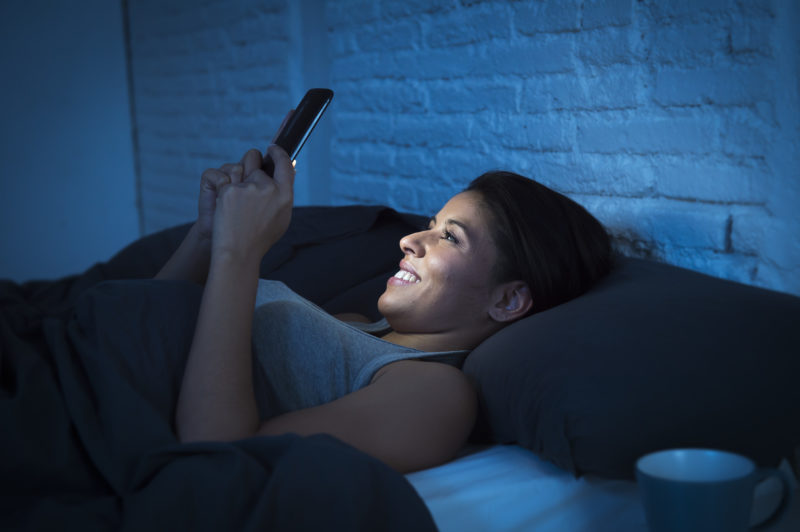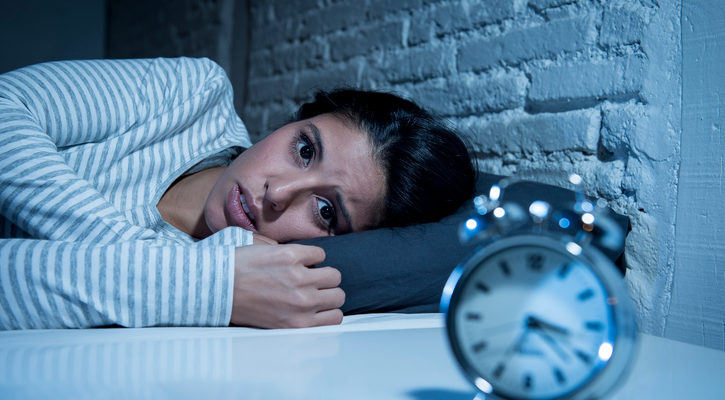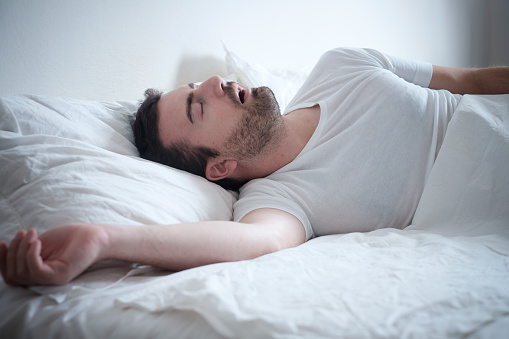Phone Beds: Your Sleep Better Solution?
Article posted in: Lifestyle
To help Americans get better sleep, some companies are suggesting you sleep in a separate bed from your closest compadre. No, not your spouse: They mean your smartphone.
According to the National Sleep Foundation, 71 percent of people go to bed with their phone. And all that late-night Facebooking and emailing can keep you up: Not only does the phone keep you stimulated, but the blue light from the screen (or from the screen of a laptop or a tablet) suppresses melatonin, a hormone that should increase as you head for dreamland.
And it can affect you all night: Research shows that exposure to even dim light during the night can mess up your internal clock, potentially leading to weight gain by throwing off your eating schedule. In one study of mice, those that slept while exposed to a dim light—like an alarm clock or computer monitor—gained 50 percent more weight over an eight-week period compared to those that slept in total darkness.
Losing sleep can affect your weight, your attitude, your career and even your lifespan: Loss of sleep leads to 1.2 million lost days of productivity in the U.S. each year. Studies suggest that a loss of sleep can mean you overreact to negative stuff, while reacting less to positive things in your life. Getting fewer than seven hours of shuteye can also affect your weight: In a University of Chicago study, those who slept seven or more hours were less hungry than those who slept less, and lost twice as much fat when dieting. Other studies have shown that when you’re sleep-deprived, you’re more likely to snack on high-carb fare late at night, more likely to eat bigger portions during the day, and are more insulin resistant—meaning that more of the excess calories you consume will be stored as fat. Oh, and it can literally kill you: Sleeping fewer than six hours per night increases your risk of death by 13 percent.
Putting your phone to bed away from your bed can help you sleep better—and live longer at a healthier weight. That’s why companies have literally developed the “phone bed,” a cute, miniature bed that doubles as a charging station. But you don’t need a $100 piece of phone furniture to get these benefits. Just turn off your screen 30 minutes before you plan to sleep—preferably in another room—and try these strategies in bed to get to sleep faster—and sleep more soundly.
1. Read something relaxing… on paper.
Enjoying a good book in bed can help you relax… but only if your reading material is relaxing! If catching up on politics or reading about international conflicts stress you out, don’t read them between the sheets. Make your sleepy-time reading something that isn’t on a screen—and won’t cause stress that keeps you wide-eyed.
2. Keep a pen and pad handy.
One advantage of having your phone by your bed is that inspiration—or some gotta-remember-to-do-this perspiration—strikes, you can make a note of it. Just because you give up your screen doesn’t mean giving up that peace of mind. Keep a pen and pad handy by the bed in case genius (or panic) strikes. You can also use this paper as part of your pre-sleep wind-down: Many productivity experts suggest making your to-do list for the next day the night before, freeing up your morning to hit the ground running.
3. Try meditating.
Studies have found that mindfulness meditations have reduced the total awake time and increased the total sleep time for insomnia patients. But you don’t have to know how to tap into your deepest, inner soul to meditate: Just pay attention to your senses. Try this: Sit on the edge of your bed with your eyes closed and back straight. Breathe in and out naturally through your nose, and try to focus solely on the physical sensations of breathing: Think about how the air feels as it goes into and out of your nostrils. How much does your chest rise and fall? Do other parts of your body move? As other thoughts enter your mind, notice yourself getting distracted, acknowledge it, and return to thinking about your breathing. After a few minutes, head to bed.
4. If at first you don’t succeed, reset.
Still tossing and turning? Don’t fight it. If you’re unable to fall asleep within 20 minutes, experts suggest getting out of bed. Go try something relaxing in another room—some reading or deep breathing—and then return to bed to give it another go.










